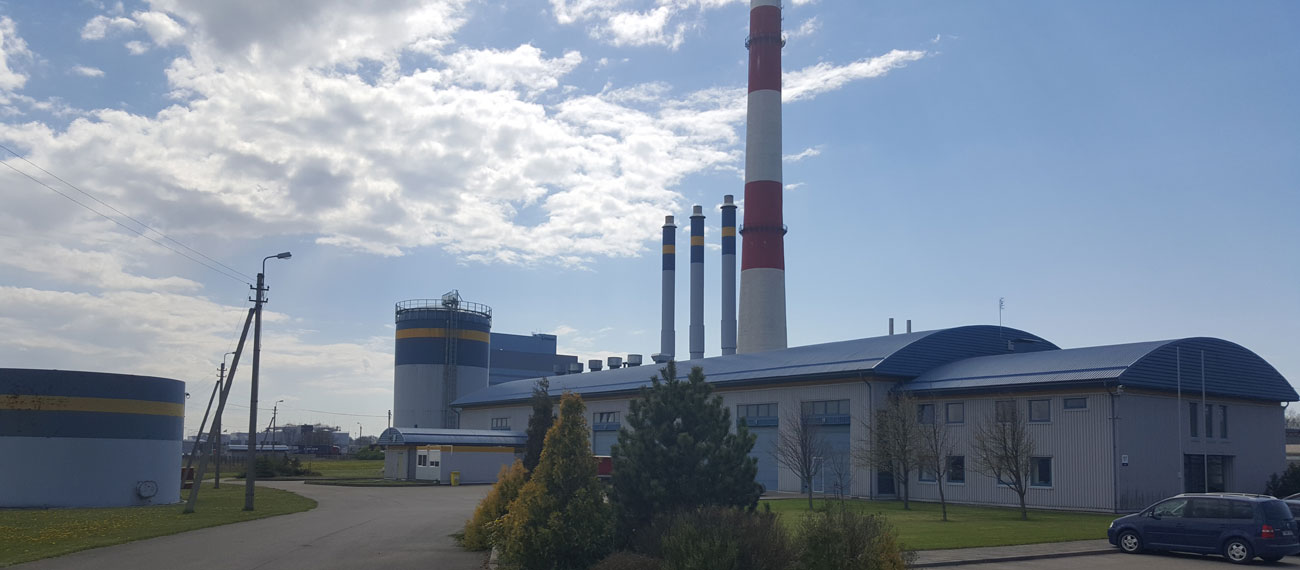KSTP: exploring new uses for geothermal water
With the help of the ALLIANCE, KSTP is preparing a feasibility study about the analysis of the chemical composition of the geothermal water of the Klaipėda region.
The company
Joint Stock Company Geoterma is a Lithuanian state-owned company set up for the purpose of investigating geothermal energy resources, improving its extraction technology and its utilisation for economic activity. JSC Geoterma has built a geothermal heat demonstration plant in Klaipeda on the Lithuanian Baltic Sea coast. This plant supplies heat to the city of Klaipeda’s district heating network from December to April each year. The geothermal water, which has a very high mineral content, is drawn from wells more than 1100m deep. The temperature ranges from +38C to +80C. In practical terms, the geothermal heat supplied by this deep geothermal water is used for heating buildings and in the preparation of hot water.
After the withdrawal of the case partner Geoterma of the ALLIANCE project, the “case idea” is continued to be elaborate further by the ALLIANCE project partner Klaipeda Science and Technology Park (KSTP).
The idea
So far, the geothermal water supply in Klaipeda has been operational only during the cold months of the year (December to April). To make the operation of the geothermal water facility more sustainable and profitable, Geoterma is exploring potential new activities and uses for the summer and autumn/spring months, when no heating services are needed in Klaipeda. Ideas to valorise the geothermal water and energy range from aquaculture – fish or shrimp cultivation – to health applications such as a thermic spa resort. For these purposes, the geothermal water has been thoroughly analysed. In 2015 it was certified by the National Institute of Public Health-National Institute of Hygiene in Poland to be suitable for use as therapeutic water and as water for swimming pools. Several other institutes have also carried out further testing which has e.g. excluded the presence of harmful microorganisms and determined the level of radiation to be normal.
The idea of the Geoterma case was to valorise the geothermal water and energy range from aquaculture – fish or shrimp cultivation – to health applications such as a thermic spa resort. KSTP is also pursuing this target being currently on the process of preparation of the feasibility study.
The feasibility study will cover the following topics:
- Heat energy impact analysis for biological processes in closed cycle recirculation systems;
- Analysis of aquaculture organism species and their justification for assessing the potential of the use of geothermal recourses for their growing in closed cycle recirculation systems;
- Descriptions of the technological processes that use geothermal resources in closed cycle recirculation systems;
- The analysis of the chemical composition of the geothermal water of the Klaipėda region (Geoterma) and possibilities how to use these resources in the closed cycle recirculation systems for water mineralization.
Becoming part of the ALLIANCE gave us a chance to discover more creative ideas and scientific analysis of our potential.
-

Sigitas Petrauskas
JSC Geoterma
The allies
JSC Geoterma was collaborating with scientific ALLIANCE partners such as Klaipeda Science and Technology Park (KSTP), the Finnish Environment Institute (SYKE) and the ALLIANCE lead partner GEOMAR Helmholtz Centre for Ocean Research Kiel to develop a biological model for potential uses of the geothermal water. Based on the results of these surveys, Geoterma and the business-experts within the ALLIANCE will develop a business model to transform it into a facility operating all year round. Besides looking at the uses for the geothermal water itself, Geoterma has also taken samples from the water at more than one kilometre depth, from which scientists are attempting to isolate possibly new microorganisms. After Geoterma’s withdrawal, KTSP finalizes the case of geothermal waters.





